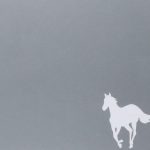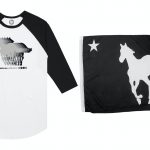Chi Cheng interviewed by by Alan di Perna (bassstreet.com)
——–
——–
Crossing a grassy square in funky downtown Sacramento, Chi Cheng pauses outside a circle of
homeless kids who are seated on the ground, pounding out a tribal beat on a few hand drums.
Most of the kids are in their early teens and have the dusty, hippie—gypsy look of people used
to sleeping rough and eating whenever they can panhandle enough change for some fast food.
Smiles of recognition light up their faces when they see Cheng. They proudly show him some new
drum beats they’ve been working out. It turns out that Chi funnels some of the money he makes
as bassist for the Deftones into a music program for Sacramento’s homeless youth. He’s bought
these kids the drums they’re playing, and a portable cassette recorder to document their
musical progress.
“When people see homeless teens they right away think: ‘drug addicts‹trouble.’” says the
dreadlocked bassist. “But these are good kids. If life had turned out a little differently,
that could be you or me there in the park.”
Cheng is an unusual guy to find playing bass in an aggressive new-metal band like the Deftones,
whose latest album White Pony is currently enjoying huge success. A practicing Buddhist,
Cheng also has a fascination with Beat Generation writers like Jack Kerouac, William Burroughs
and Allen Ginsberg. He has recently put out a spoken word disc, Bamboo Parachute, culled from
the stockpile of poetry he’s written over the years.
“All my views are hippie views which are not necessarily shared by the rest of the band,” he
laughs.
Cheng was majoring in literature at Sacramento State College when he first joined the Deftones.
“The guys put out an ad for a bass player around 1989,² he recalls. “I was in college, and I
think Chino [Moreno, the Deftones lead singer] and Abe, [Cunningham, the band’s drummer] were
maybe 15 or 16. They’d already been together for a few years. I remember things like, ‘Chino
can’t come to band practice, because he got grounded. He got bad grades.’ I’m really proud of
Chino’s work on White Pony. I knew him when he was a little kid. And now he’s what I consider
an amazing singer.”
The Deftones were signed to Madonna’s Maverick label in 1994. Their first two albums Adrenaline
(1995) and Around the Fur (1997) both went gold and attracted favorable notice in the metal
community. But all this pales in comparison with the Top 5 ascendancy of White Pony, which
finds the band mixing a wide range of musical styles with their core metal sound.
“My own influences are different than the other guys,” says Cheng. “I’m a big fan of world beat,
jazz and reggae. On our single “Change (In the House of Flies),” there’s kind of a dub style
bass. But it’s subtle.”
In many ways, Cheng provides the perfect foil to Deftones guitarist Stephen Carpenter’s power
chord menace. “Stephen’s the technical guy,” says Chi. “I just like to plug in and play. I’m
like a punk rock artist in that regard. I use all Fenders‹mostly P-Basses, and I’ve got a
Fender Tele bass. The Fender Custom Shop puts a lot of love into the basses they make. I can
tell the difference. I beat on my instruments a lot, and they always stay in tune!”
Cheng says he was won over to Fender basses when the Deftones played the Warped tour in 1995.
“I saw Sergio from Quicksand take a Fender, swing it around his neck and throw it across the
stage. It bounced off a monitor. He picked it up, put it back on and it was still in tune. And
I was like, ‘That’s it. I gotta have Fenders.’”
All members of the Deftones praise Madonna for sticking with them through the lean years that
preceded White Pony’s rise to the top of the charts. “She’s an amazing woman,” says Cheng.
“Real intelligent. Really fierce. I think she tends to belittle a lot of men. She can make a
man feel small. But I think it’s good for a man to be in the presence of a woman who’s so
powerful and intense about what she’s doing that it’s a humbling experience.”
With Cheng going around making statements like these, and the band’s multi-ethnic makeup,
observers have cast the Deftones as a politically correct alternative to some of the more
overtly misogynist and homophobic acts in the current rap/metal arena.
“I think we’re so self-involved that we don’t even compare ourselves to any other bands,”
says Cheng. “Maybe we’re part of this new metal thing. When I think in those terms at all, I
think of us more like Tool or Rage Against the Machine.”
But has Cheng seen a change in the audience’s makeup since the Deftones hit it big?
“I don’t know,” he laughs. “I keep my eyes closed on stage the whole time.”



